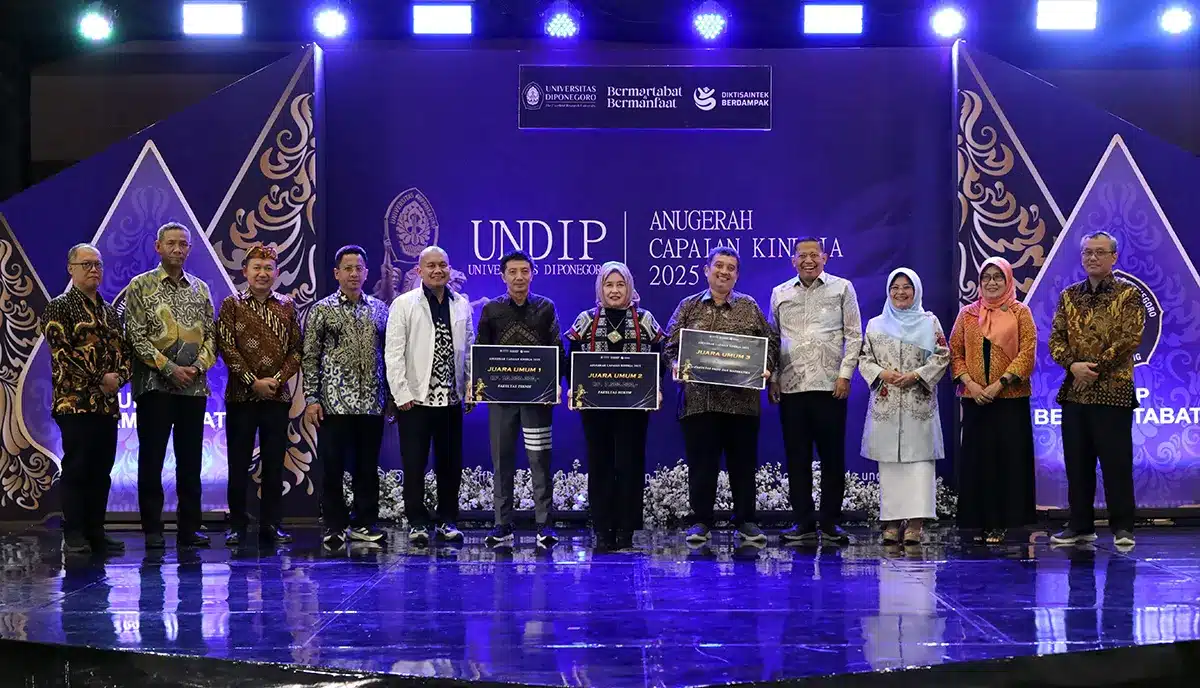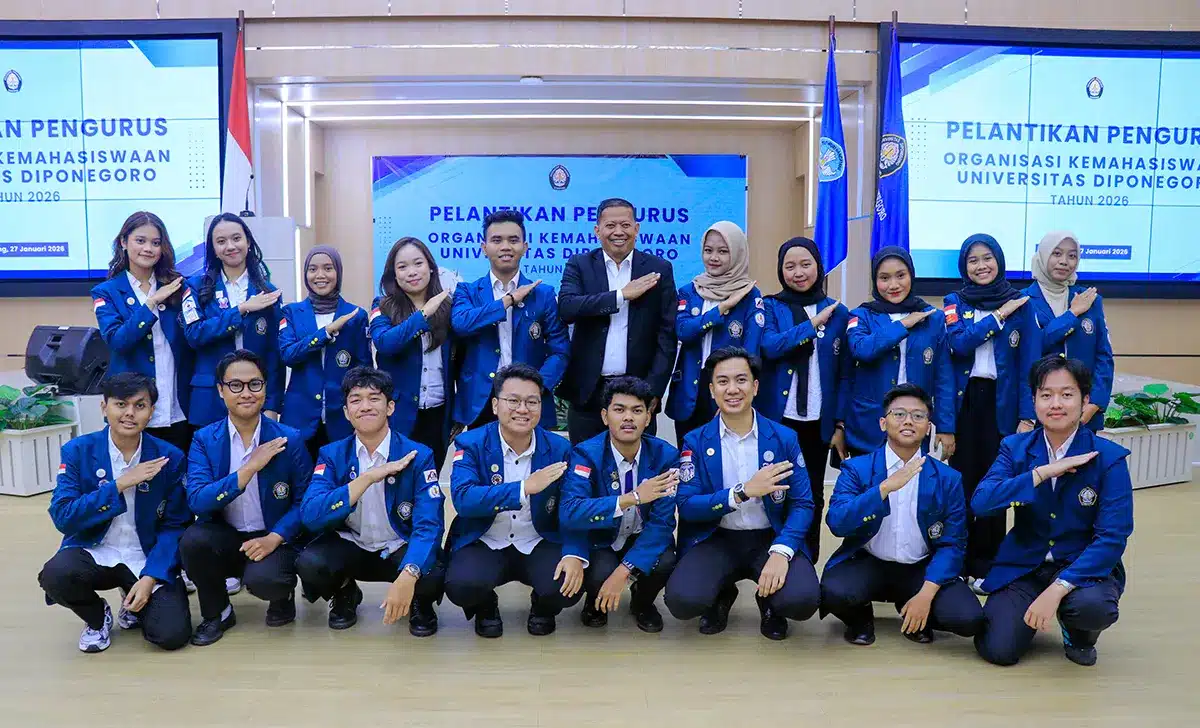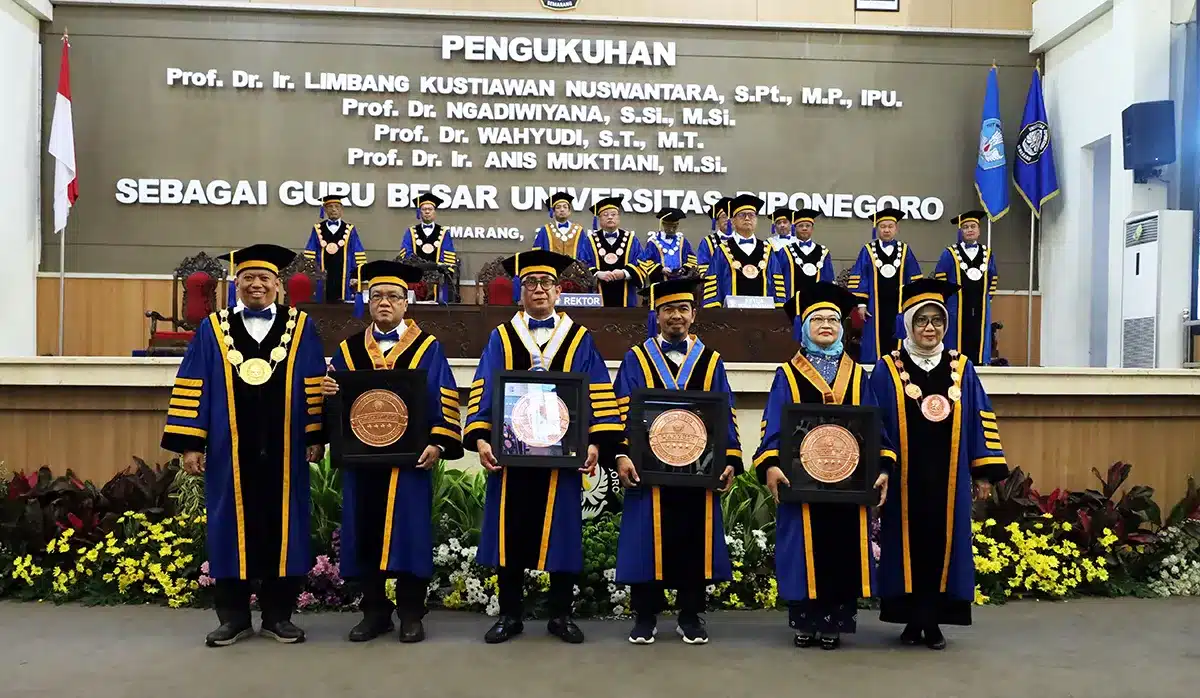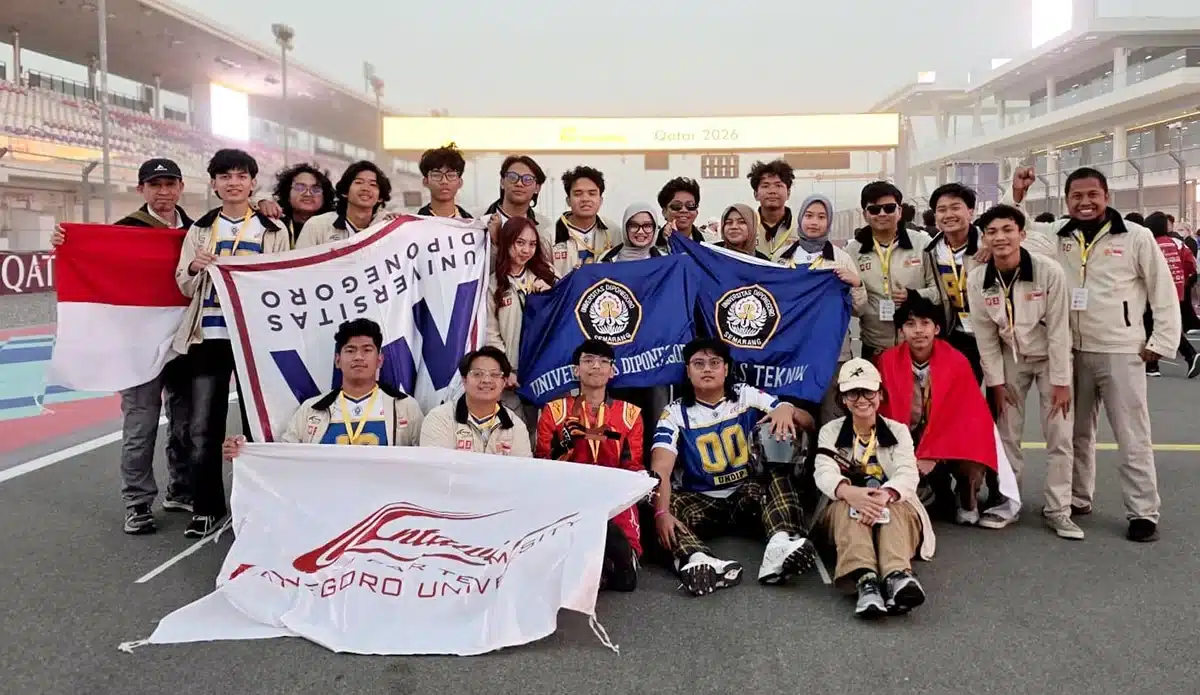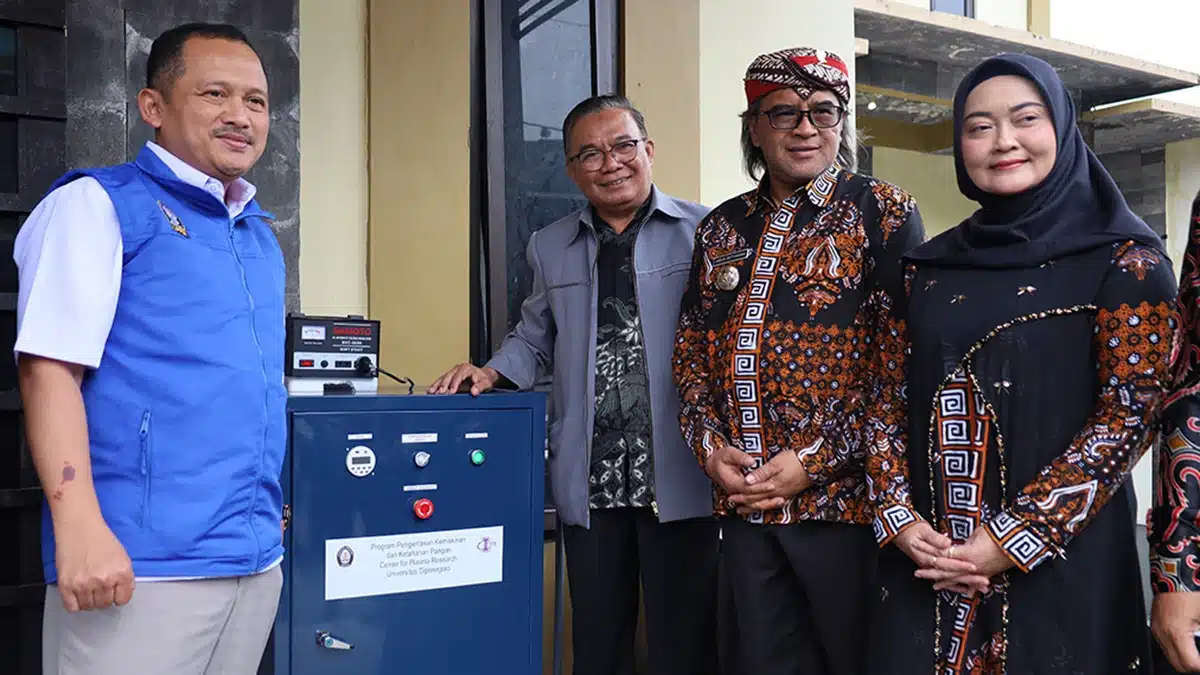One of the goals of higher education is to produce science and technology that is beneficial for the progress of the nation and the welfare of mankind through research and community service. In addition, community service activities based on reasoning and results will be more useful in solving problems, advancing general welfare and educating target partners. This means that the implementation of research and community service are the hallmarks of a university. Community service activities designed by the Faculty of Animal Husbandry and Agriculture UNDIP are carried out to increase the productivity of farmers/breeders in developing their businesses and able to exist in the midst of the Covid-19 pandemic.
Wednesday, September 9 2020, the FPP UNDIP Service Team conducted a training at the Kaliwungu Village Hall, Kaliwungu District, Kudus Regency. Undip FPP service coordinator Ir. Bambang Sulistiyanto, M. Agr., Sc., Ph.D., I.P.U. explained that this activity was a warm welcome from the Department of Agriculture and Food of Kudus Regency who hoped for Higher Education assistance to Gapoktan Makmur Sejati, Kaliwungu District Kudus. The training was carried out with the aim of creating zero waste farms and developing livestock businesses by processing milk into kefir, improving the quality of animal feed and processing livestock waste into organic fertilizer. “FPP Undip brought 4 speakers, namely Prof. Dr. Ir. F. Kusmiyati, M.Sc (Processing of Solid and Liquid Organic Fertilizers); Dr. Ir. Retno Iswarin Pujaningsih, M.Agr.Sc (Goat Sharing and Feed Processing); Dr. Ir. Marry Christiyanto, M.P., I.P.M. (Ruminant Feed Formulation) and Dr. Heni Risqiati, S.Pt., M.Si. (Processing of Milk into Kefir)” said Bambang during the sidelines of the event.
The Speaker, Prof. Dr. Ir. F. Kusmiyati, M.Sc. in her presentation explained that the processing of livestock waste, both solid (feces) and liquid (urine), is very easy and profitable considering that in the present era everyone has switched to organic products such as organic rice, organic vegetables and organic fruit. “Hopefully, after this training, at least 1 or 10 attended participants can put a practice of this waste processing technology,” said the Undip Professor during the presentation of the material.
This training activity was also attended by the Head of Kaliwungu Village, the Head of the Kaliwungu Sub-District and the Head of the Department of Agriculture and Food of Kudus Regency and its staff. Sholeh as the Leader of Gapoktan Makmur Sejati hopes that with this training, farmers/breeders can put a practice of this useful innovations, so that the objectives of this training can be achieved. “Not only as a form of technology transfer from the university but also for farmers/breeders to be able to create a business environment that supports the improvement of people’s welfare,” said Sholeh. The assistance that is carried out by FPP Undip is expected to provide the ability to control all aspects of agricultural livestock business, from on farm to off farm by farmers/breeders.


